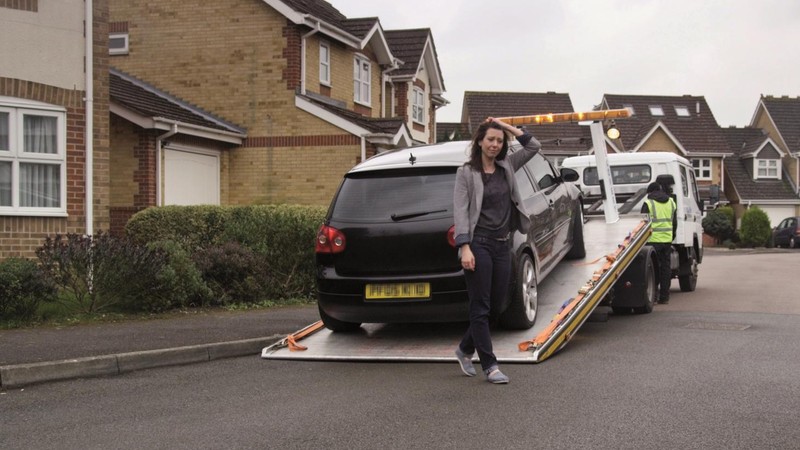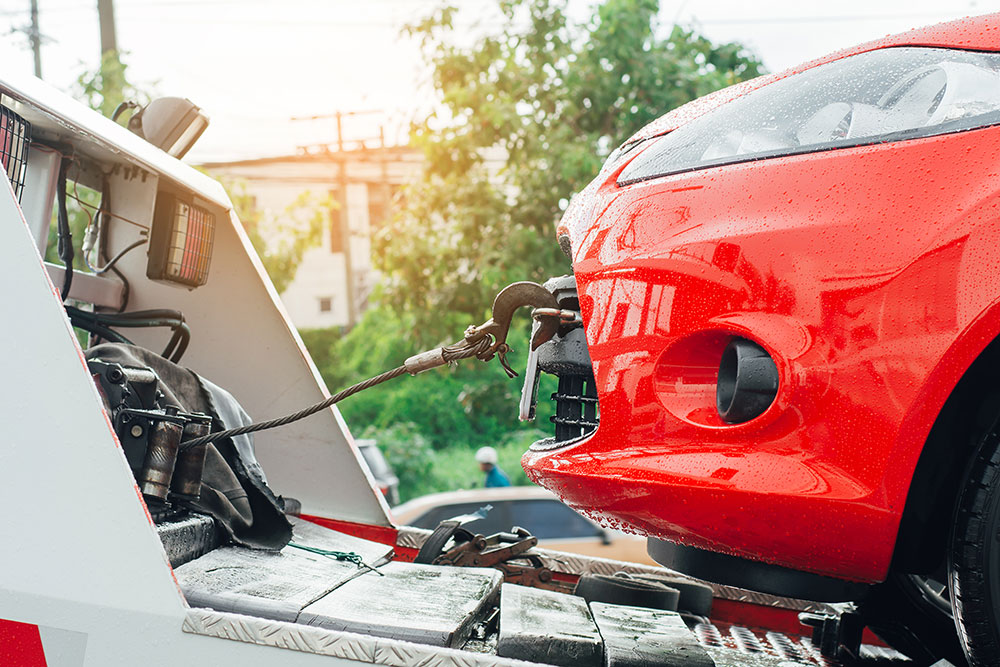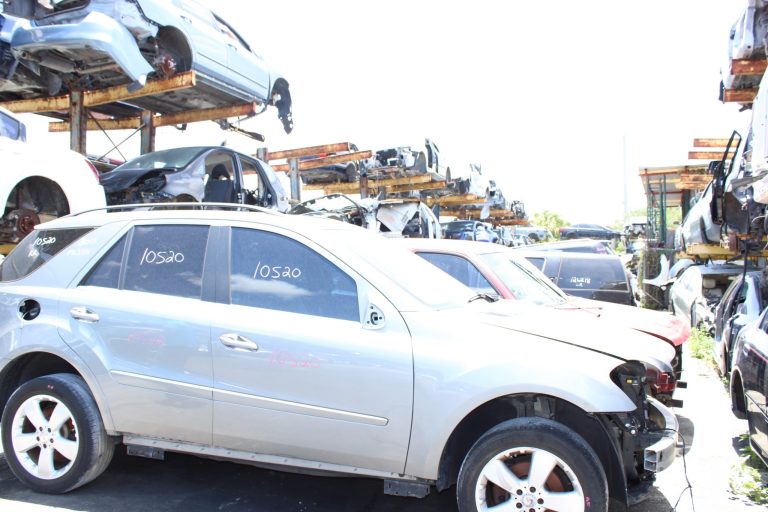How Much Are Repossession Fees?
Repossession fees can hit hard if your vehicle is taken due to unpaid loans. These costs, influenced by state laws and lender policies, typically cover towing, storage, and legal actions. Today, we will break down the components of repossession fees and suggest ways to manage or minimize them, helping you navigate this financial challenge more effectively.

How Much Are Repossession Fees?
Repossession fees can vary widely depending on several factors including the state, the lender’s policies, and the specific circumstances of the repossession. Generally, these fees can include:
- Towing/Transportation Fees: The cost to transport the vehicle to a storage lot often ranges between $50 and $250.
- Storage Fees: Keeping the vehicle in a repo lot typically costs between $20 and $50 per day.
- Late Fees: These are usually determined by the terms of your loan contract and are often a percentage of the payment amount.
- Auction Fees: If the vehicle is sold at auction, fees can range from 10% to 15% of the sale price.
- Legal Fees: These cover the costs associated with the legal process of repossession and can vary.
The total repossession fees can quickly add up, often reaching $500 to $1,000 in just the first week after repossession. It’s important to act quickly if you are facing repossession to minimize these fees, whether through reinstating the loan, refinancing, or even voluntary surrender to avoid additional charges.
Each state has its own set of regulations that can influence the exact fees, and lenders may also have specific charges based on the contract terms. For a detailed breakdown of repossession fees by state and more information on how to handle a repossession scenario, checking with local regulations or consulting a financial advisor would be beneficial.
How Does Car Repossession Work?
Car repossession typically occurs when a borrower fails to make timely payments on their vehicle loan. Here’s a general overview of how the process works:

-
Missed Payments and Notice: Typically, once a payment is missed, the lender may send notices to the borrower requesting payment. The specific terms about how many payments can be missed before repossession occurs are usually outlined in the loan agreement.
-
Repossession Order: If the borrower continues to default without rectifying the situation, the lender can order the repossession of the vehicle. This order is often executed by a repossession agency.
-
Seizing the Vehicle: Repossession agents are authorized to seize the vehicle from any place where it is legally accessible, including the borrower’s home, workplace, or other public places. They are not allowed to breach peace, which means they cannot break into a locked garage or otherwise cause a disturbance.
-
Storage and Inventory: Once the vehicle is repossessed, it is typically towed to a lot where it will be stored. The repossession agent often makes an inventory of the vehicle’s contents to ensure that personal belongings can be returned to the owner.
-
Opportunity to Redeem: The borrower usually has a chance to redeem the vehicle by paying the total amount due, including any back payments, fees, and the costs incurred during the repossession process. This must be done before the vehicle is sold.
-
Sale of the Vehicle: If the borrower does not redeem the vehicle, the lender may choose to sell it, typically at a public or private auction. The proceeds from the sale are used to cover the unpaid loan balance, repossession costs, and any associated legal fees.
-
Deficiency Balance: If the sale of the vehicle does not cover the total amount owed, the borrower may still be responsible for the deficiency balance, which is the difference between the sale proceeds and the amount owed.
-
Credit Impact: Repossession has a significant negative impact on the borrower’s credit score and can remain on the credit report for up to seven years, affecting the borrower’s ability to obtain future loans.
How Much Do Repossession Agents Make?
Repossession agent salaries can vary depending on a few factors, here’s a breakdown:
- Salary vs. Commission: Repossession agents can be salaried employees or work on a commission basis. Commission typically pays per car repossessed, while salaried positions offer a steady income.
- Experience: As with many jobs, experienced agents tend to command higher salaries or commission rates.
- Company and Location: Repo companies may offer different pay structures based on their location and industry standards.
Here’s a range to give you an idea:
- Average Salary: The average yearly salary for repo agents in the US falls around $33,045, according to Salary.com.
- Salary Range: Salary ranges can be anywhere from $27,943 to $35,007.
- Commission: Commission per repossessed vehicle can range from $150 to $400 [2, 4]. A repo agent repossessing 4 cars a week could make $1,600 to $4,000 per month [4]. This can be quite lucrative, but depends on the number of repossessions made.
Comparing Repossession Fees Across States
Repossession fees can vary significantly across different states due to varying state laws and regulations. Here’s a general comparison of repossession fees across a few key states:

1. Florida:
- Repossession fees typically range from $300 to $500.
- Additional towing and transportation fees can be between $50 and $250.
- Daily storage fees usually range from $20 to $50.
2. Texas:
- The fees for repossession itself are usually between $300 and $400.
- Towing and transportation fees also range from $50 to $250.
- Storage fees for the repossessed vehicle are about $20 to $50 per day.
3. California:
- Basic repossession fees range from $300 to $500.
- Towing and transportation can cost between $100 and $300.
- Daily storage fees are typically between $25 and $60.
4. Ohio:
- Repossession fees are limited to $25 unless specified differently in the loan agreement.
- Storage fees can go up to $17 per day for vehicles under 10,000 lbs.
- Late payment fees are based on contract terms.
5. Georgia:
- Repossession fees generally range from $300 to $500.
- Towing and transportation fees can vary between $75 and $200.
- Daily storage fees are usually between $20 and $50.
6. Illinois:
- Repossession fees are typically not regulated but tend to range around $300 to $500.
- Towing and transportation fees range from $100 to $300.
- Storage fees are often capped at $100 per day by state law, usually costing between $20 and $50 per day.
These fees can quickly add up, especially with the addition of legal and auction fees if the vehicle is sold to recover the loan amount.
How to Avoid or Reduce Repossession Fees?
Here are some strategies to consider:
-
Communicate Early with Your Lender: As soon as you anticipate difficulty in making payments, contact your lender. Many lenders prefer to work out a payment plan rather than repossess a vehicle, as repossession is costly for them too.
-
Seek Loan Modification: Ask if your lender offers loan modifications that can temporarily reduce your monthly payments or extend your loan term to make payments more manageable.
-
Refinance the Loan: If you have good credit, refinancing your car loan might be an option. This can lower your interest rates or extend the duration of your loan, reducing monthly payments.
-
Sell or Trade the Vehicle: If keeping up with payments is unsustainable, consider selling the vehicle yourself before it gets repossessed. Selling it privately can often secure a higher price than what the lender might get at an auction after repossession.
-
Voluntary Surrender: If repossession seems inevitable, voluntarily surrendering your vehicle can reduce the lender’s expenses related to repossessing the vehicle, which might lead them to waive some fees or reduce your debt.
-
Get Legal Advice: Consulting with a lawyer can provide insights into your legal options and rights, including any state-specific protections against repossession.
-
Bankruptcy: As a last resort, filing for bankruptcy might halt the repossession process through an automatic stay. Bankruptcy can give you a chance to reorganize your debts and potentially keep your vehicle.
Frequently Asked Questions
How does repossession work?
Repossession starts when a borrower defaults on a car loan. Lenders can hire repossession agents to take away the vehicle, and borrowers may also face additional costs such as towing, storage, and auction expenses.
How can I avoid repossession?
You can avoid repossession by being proactive– negotiating with lenders, ideally before you start missing payments. Propose a new payment plan, educate yourself about your rights and the costs involved to make informed decisions.
Are there different types of repossession?
Yes, there are two types of repossession, voluntary and involuntary. Both types may lead to the sale of your car at an auction, with you being responsible for any leftover balance.
Does repossession affect my credit score?
Yes, both voluntary and involuntary repossession can negatively impact your credit score and make it more difficult to obtain future loans. Lenders may view these as risk factors.
Can I negotiate the repossession fees?
Yes, lenders often are willing to negotiate if approached with a realistic plan. They might modify your loan terms, reduce your interest rate, or even reduce your overall debt.

Hi! I’m Larry Gibbs, studying mechanical engineering with a focus on cars. I really love Ferraris and write blog posts about the latest car stuff. When not studying or blogging, I’m usually on a road trip exploring new places. I also enjoy playing football and watching movies. Life’s an adventure, and I’m all about enjoying the ride!






